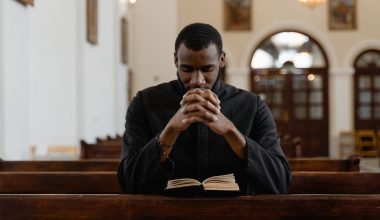The biblical narrative of “Abraham Goes Down to Egypt” is a pivotal episode in the life of the patriarch Abraham, whose journey is chronicled in the Book of Genesis. This compelling story takes us back to a time when Abraham faced a severe famine in the land of Canaan, pushing him to make a fateful decision to seek refuge in Egypt.
The events that unfold during his sojourn in Egypt not only provide insight into the challenges and complexities of his faith but also shed light on broader themes of trust, divine providence, and the intricate relationship between faith and human strategy.
Abraham Goes Down To Egypt
Psalm 32:8 “I will instruct thee and teach thee in the way which thou shalt go: I will guide thee with mine eye”
Going Down Into Egypt (Genesis 12:10; Proverbs 24:10; Isaiah 30:1-3; Ruth 1:1-7; 1 John 2:15).
“And there was a famine in the land: and Abram went down into Egypt to sojourn there; for the famine was grievous in the land” (Genesis 12:10).
“Go not down into Egypt; dwell in the land which I shall tell thee of” (Genesis 26:2).
“Woe to them that go down to Egypt for help and stay on horses, and trust in chariots, because they are many; and in horsemen, because they are very strong; but they look not unto the Holy One of Israel, neither seek the Lord!” (Isaiah 31:1).
“Love not the world, neither the things that 9 are in the world. If any man loves the world, the love of the Father is not in him” (1 John 2:15).
Grave Dangers In The Descent Into Egypt (Genesis 12:11-17; Ruth 1:1,3,5; Isaiah 31:3; 2 Corinthians 6:14-16).
“Take heed, brethren, lest there be in any of you an evil heart of unbelief, in departing from the living God” (Hebrews 3:12).
“And he entreated Abram well for her sake: and he had sheep, and oxen, and he asses, and menservants, and maidservants, and she asses, and camels” (Genesis 12:16)
“For what is a man profited if he shall gain the whole world, and lose his own soul? Or what shall a man give in exchange for his soul?” (Matthew 16:26).
God’s Omnipotence(Genesis 12:17; Job 42:2; Luke 1:37; Matthew 19:26).
The Knowledge Of Obedient Gentiles (Genesis 12:18; 20:6-9; Romans 2:14,15; 7:22; Psalm 40:8).
Glorious Departure From Egypt (Isaiah 52:11; 2 Corinthians 6:17,18; Genesis 12:18-20; 13:1; Exodus 12:30-33; Hebrews 11:22).
“And Pharaoh called Abram, and said, what is this that thou hast done unto me? Why didst thou not tell me that she was thy wife? Why saidst thou, she is my sister? So I might have taken her to me to wife: now, therefore, behold thy wife, take her, and go thy way. And Pharaoh commanded his men concerning him: and they sent him away, and his wife, and all that he had” (Genesis 12:18-20).
FAQS
1. Why did Abraham go to Egypt?
Abraham went to Egypt due to a severe famine in the land of Canaan, seeking food and sustenance for his family.
2. What happened to him in Egypt?
In Egypt, Abraham feared that Egyptians would take his wife, Sarah, because of her beauty. To protect themselves, they pretended to be siblings. Pharaoh took Sarah into his household, but God intervened to protect her, sending plagues upon Pharaoh’s house.
3. What should we do when faced with difficulties?
When faced with difficulties, we should seek guidance, maintain faith, and make decisions with integrity, relying on our beliefs and principles.
4. Mention some ungodly ways people follow to solve their problems.
Some ungodly ways people may resort to solving their problems include deception, dishonesty, manipulation, and taking harmful actions that go against moral and ethical values.
Conclusion
“Abraham Goes Down to Egypt” stands as a testament to the enduring relevance of ancient biblical narratives. It serves as a reminder of the human condition, where individuals, even those of great faith, must navigate the trials and tribulations of life.
Abraham’s journey to Egypt, marked by moments of doubt, deception, and divine intervention, ultimately reinforces the idea that faith and trust in a higher power are indispensable in the face of adversity.
As we reflect upon this episode in the life of Abraham, we are reminded of the timeless lessons it imparts, urging us to place our trust in the divine while navigating the uncertain journeys of our own lives.








